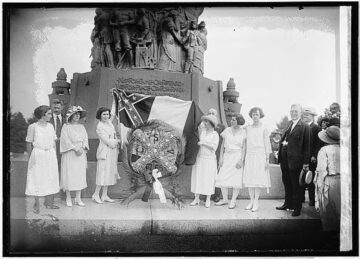Gillian Brockell in The Washington Post:
He was bothered by reports that in towns across the South, women were decorating the graves of dead Confederates. Two years later, he proposed the same idea. On May 5, 1868, Logan ordered the first nationwide public holiday on May 30, then known as “Decoration Day,” to honor war dead. A national day honoring American men and women who have died while serving in the military has been observed ever since.
On Monday, millions of Americans will mark Memorial Day again with parades, picnics and cemetery visits. Officially, Memorial Day started in Waterloo, N.Y.; that’s according a 1966 law signed by President Lyndon B. Johnson. And there was definitely a local observance of war dead there in 1866. But here’s the thing — there’s no evidence Logan was inspired by or even aware of Waterloo’s observance when he pitched his plan. Contemporaneous coverage doesn’t credit Waterloo either. In 1868, the New York Times said: “The ladies of the South instituted this memorial day. They wished to annoy the Yankees; and now the Grand Army of the Republic in retaliation and from no worthier motive, have determined to annoy them by adopting their plan of commemoration.”
More here.

 In July 1866, a
In July 1866, a